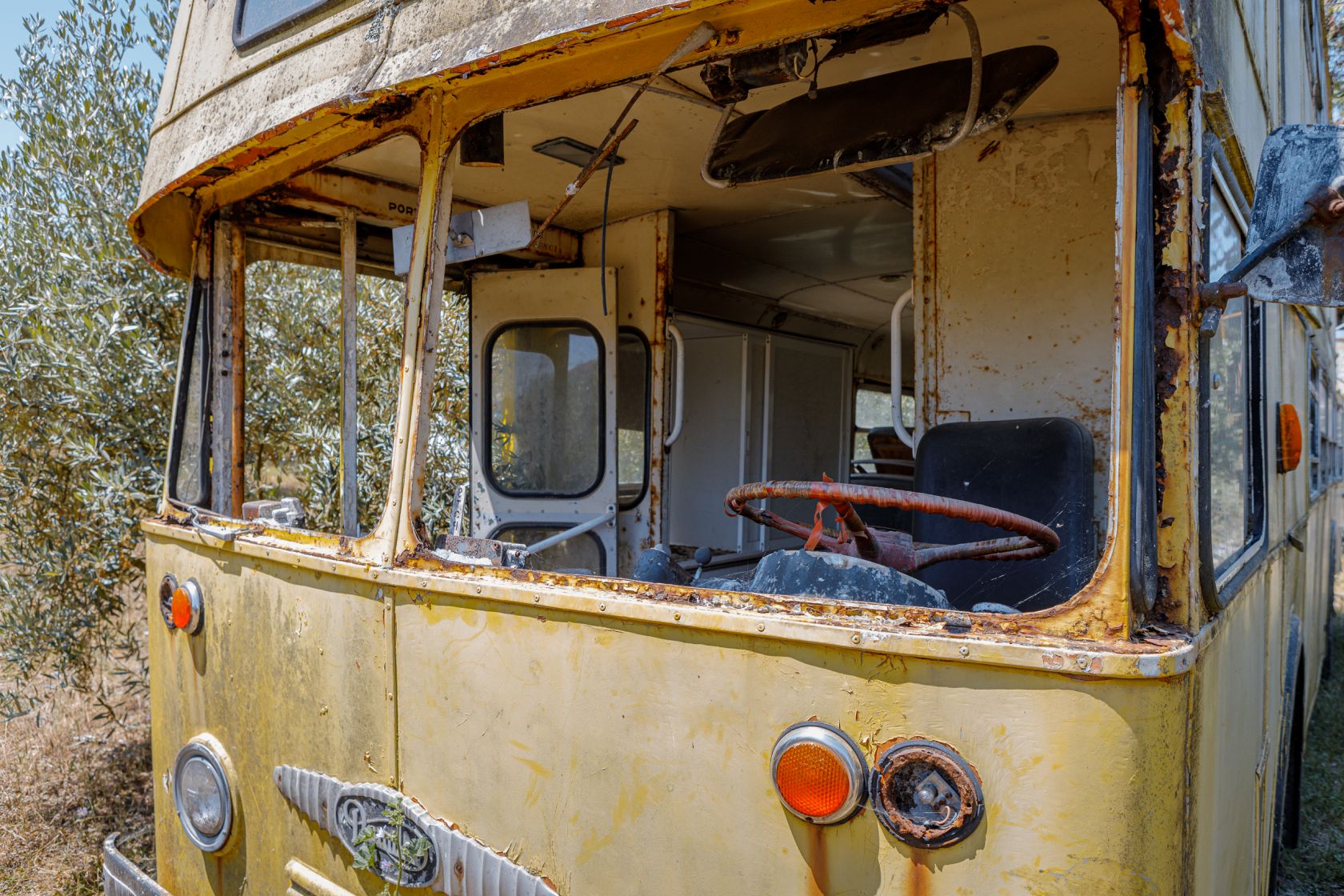While the idea of downsizing may not appeal to everyone, for a growing number of people tiny homes represent an opportunity to challenge conventional notions of homeownership and adopt a simpler, more sustainable way of living.
Tiny homes come in various shapes and sizes, with owners continuously finding innovative ways to create unique and cosy abodes.
From city commuting to a countryside retreat
Tucked away amongst fig and citrus trees in the countryside of central Portugal, you can find one of the country’s most unique tiny homes in the form of a vintage, double-decker bus that was once part of Portugal’s Rodoviária Nacional.

In 2018, this bus was given a second lease of life by the Marcelino family, who transformed it into a wonderfully inviting tiny home.
Ricardo spoke with The Portugal News about his and his family’s experience undertaking this project, and what made them want to take it on in the first place.

Ricardo shared that they wanted to make use of some of the space they had on their farm. “We thought about building a wooden cabin but there were already plenty of those in Portugal and we wanted to do something different.” The family toyed with the idea of a treehouse until they heard about an abandoned vintage bus located in Condeixa.
With some determination, they located the owners and purchased the bus in 2017, which marked the beginning of this remarkable project.

A tiny haven inside a vintage bus
The enthusiasm behind this venture was evident throughout the call. This was the first project they had undertaken like this, and it was truly a family venture, with everyone playing their part.
“We did all the work ourselves on the bus; myself, my brother-in-law and my father, who was a carpenter before he retired” Ricardo shared.

You can watch videos of the transformation process taken by the family on their YouTube channel and their website.
Leiria 18
The bus’s exterior is green and white, with the destination sign “Leiria 18” on the front, symbolising the date the bus arrived at the home of the Marcelino family, in 2018, and Leiria, the municipality in which their farm is situated.
This retro tiny home comes with electricity, air-conditioning, internet and a water tank system. Rainwater is also collected making this even more self-sufficient, with the farm’s solar panels providing additional energy. Together these features make it ideal for both the summer and winter months.

Plenty of personal touches
What is so wonderful about this project is the amount of thought and detail that has clearly gone into its creation. The inside oozes comfort and nostalgia, with photos of the bus from its life in the 60s hanging on the walls, a traditional bus stop at the entrance and the original driver’s seat and wheel still in place at the front.
For guests who book a stay, they’ll often find something prepared by different members of the family left for them to enjoy, which have included homemade bread and biscuits, homemade Abafado, (a type of wine), and bottles of olive oil produced using the farm’s olives. This olive oil is also used in the production of the bus’s hand soap.

Ricardo shared that a lot of the feedback they receive from families is about how much their kids love the fun and unique aspects of this creation, as well as the small play area and sandpit. “The majority of guests are families, and the children love it. When they see the bus their faces light up in amazement, which is always so nice to see.”

For other visitors, the peace and quiet offered by the location is one of the biggest pulls. There is an outdoor area which includes a swimming pool, barbecue and a hot tub, built by Ricardo’s father, making it the perfect place to enjoy the countryside views and relax in this delightful rural region of Portugal.

What’s next for the Marcelino family?
The Marcelino family is already working on their second project—a bus that was once a part of Lisbon's public transport network during the 1970s and 1980s. “This will be our próxima paragem (next stop)” shared Ricardo. “The previous owner had thought about turning the bus into a bar or café, but eventually we bought it to create another tiny home”.

Despite not being situated in a traditionally tourist area of Portugal, their tiny home is consistently booked, showing just how many people are looking for a unique experience like this, and a place to escape in a peaceful setting.











